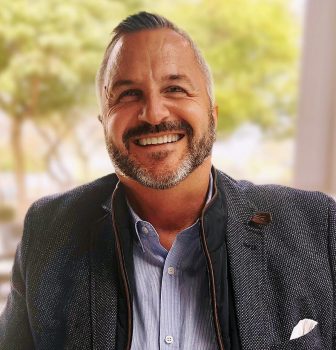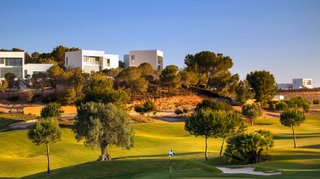
How to buy a property in Spain?
Buying real estate in Spain: What are the steps and processes to buy in Spain?
Costa Blanca, the sweetness of life
With 300 days of sunshine a year, the Costa Blanca has one of the highest sunshine rates in Europe. A beautiful natural environment with its endless beaches. An excellent transport network, a renowned gastronomy. A real estate offer, first-rate infrastructures and the sweetness of Spanish life 2 hours flight from Paris. It is no coincidence that the French prefer this destination for their holidays, as many people are looking for real estate opportunities.
Real estate purchase on the Costa Blanca
This information is intended to help you get the information you need to make a serene and responsible decision about buying your property on the Costa Blanca in Spain.
Acquire a property on the Costa Blanca
If you are considering buying a property in Spain, you should keep in mind that the legal system and the steps to follow are different from those you may have experienced in France.
How to make a real estate purchase in Spain?
Pitfalls to avoid :
Never go through an individual. A direct sale with the owner or through "friends", to save fees in the sale price can ultimately be very expensive.
There is, in this case, more chance of ending up with an unhealthy property and unfortunately we can not usually turn against the owner. Indeed, Spanish real estate law is not the same as French real estate law, for example: the Spanish notary, unlike the French, does not guarantee the origin of the property. In other words, if your seller is not the owner of the land in question, you may have serious disappointments in case of problems.
The watchword is therefore caution. Never embark on a hasty purchase even if all the characteristics of a sale seem appropriate.
It is essential in Spain to choose your professional real estate agent who will be your most valuable help during your process. Consult the services of a professional in the field for the management of the transaction. Looking for a French agent will be a significant asset and a guarantee!
Negotiation of the selling price
In Spain, it is common to send an offer to the owner of the property for sale, but prices are less and less negotiable. Faced with the amount of offers on the market, sellers now stand out by displaying a very attractive price from the start. You won't lose anything by trying, but it's unlikely that you can bring the price down dramatically .
Your agent will take care of this process and guide you on the possibilities of negotiation according to the history of the property: price recently lowered or excessive compared to the market. Do not lose sight of the fact that your agent will do everything so that the deal can be done, he will be your best ally and will try to be as skilled as possible to negotiate your proposal.
Be aware that if your offer is accepted, it will be necessary to proceed with the reservation of the property. It is very damaging professionally for an agent to negotiate a price if the buyer does not follow through. Do not engage in a negotiation if you are not ready to buy the property!
Also, do not make several offers at once on several products, you will lose all credibility with the agent, but make them successively if your previous proposal was rejected.
It is not customary to make an offer on new real estate, as most developers have already passed on the price reductions on their rates.
A written offer is always preferable to one made verbally.
The stages of buying real estate in Spain
The classic act of real estate purchase takes place in three stages:
- La Reserva, the reservation.
- El Contrato Privado de Compraventa, the promise to purchase.
- The Escritura, the authentic deed of sale.
1. La Reserva:
It is the payment of a deposit to reserve the offer pending the signing of the promise to purchase. The sum is not always proportional to the selling price, it is generally in the range of € 3,000 to € 6,000.
If you are passing through, you can perfectly sign the reservation before your departure, as long as the parties have an agreement on the thing and the price.
In case of withdrawal on your part, you lose the amount paid.
You will therefore need to:
a. Apply for your NIE. Spanish legislation makes the NIE mandatory for all foreigners who want to buy or sell a property in Spain.
b. Open a bank account in Spain. It is important to note that in Spain, even non-resident foreigners can benefit from loans to reform their homes.
These two points are mandatory.
The Foreigners' Identification Number (NIE) issued by the General Directorate of Police is necessary to make a real estate purchase.
2. El Contrato Privado de Compraventa:
This is a private sub-signature document signed between the parties. This document is even more important than the authentic instrument, because the latter will only be the transcription of what has been signed previously.
By this deed, the buyer undertakes to sign a public deed before a Notary within a specified period. Failing to respect his commitments, he will lose the deposit, as if it were a capital allowance.
We find in this document, the identity, the contact details as well as the qualities of the parties, the description of the proposed operation, the legal capacity to sell or buy, a description of the object with its registration number at the Conservation of Mortgages, the legal situation of the property (free of tenants' charges), the agreed price, the deposits paid, the deadline for signing the authentic deed (Escritura) before Notary, the distribution of the payment of the costs and charges due, the date of the transfer of ownership and / or taking possession of the housing, the consequences of the withdrawal of one of the parties.
Attention: the signing of this deed does not deprive the seller of selling to a better buyer, provided that the ousted buyer is paid twice the deposit paid. It may therefore sometimes be appropriate, in order to deprive the seller of any other offer, to pay a large deposit, usually 10% of the sale price including the amount of the reservation.
3. The Escritura:
The Escritura Pública de Compraventa (the authentic deed of sale) is a public document signed before a notary. However, the notary in Spain has no responsibility for the legal and fiscal state of the property, i.e. he will not carry out any checks on the cadastre, the urban situation etc. It is therefore the responsibility of the buyer to carry out these checks. It is strongly recommended to call on a lawyer. In this deed, the parties will express their willingness to sell and buy and the conditions provided, the notary, under the faith of his oath will validate these declarations and he will ensure the "legal certainty" of the sale through various checks (legitimacy of the seller, payment of taxes, seizures, debts, servitudes.. etc.). During this act, the parties may be represented. This will be the time of delivery of the key to the buyer against payment of the balance due by certified cashier's check.
The commission that Spanish banks take for the establishment of a certified check is high. It is advisable to negotiate this point when you apply to open the account in order to avoid unpleasant surprises. The right to choose the notary rests with the person who bears the costs of the deed or most of them.
Taxes on the purchase of real estate in Spain
The usual practice is that the costs of the notarial public deed are the responsibility of the buyer!
In the event that there is no agreement on this matter, (rare cases), the Act distributes the fees in the following terms:
- The seller will pay: the costs of termination of the outstanding charges; the public act; the urban contribution (IBI = Municipal Tax) and the Tax on the Increase in the Value of Land ("plus-valus" municipal).
- The buyer will pay the first copy of the deed; the transmission tax (ITP 8 to 10%) or VAT (10%) and AJD and registration in the Land Register.
- The fees of assessor, lawyer, etc., will be paid by the one who grants themselves their services.
Some administrative and tax obligations of the buyer
A person who does not have his tax residence in Spain and who owns a property located in the country, will be subject to the income tax of non-residents as well as the tax on real estate (I.B.I) which is a local tax required by your town hall (the equivalent of the property tax).
When a building is owned by a couple or several people, each of them will have to submit separate declarations.
Steps taken after the act was taken
Once the authentic deed has been signed, certain steps and obligations must be carried out. Some will be taken care of by the notary through his office.
Payment of Taxes and Registration in the Land Register. You will have to pay a deposit amount of the fee for which you will have to be given the corresponding receipt. Once the deed is in your power, (about 2 months after signing) check the payment of taxes and registration and require a detail of the accounts. Do not accept global receipts, claim invoices from the Notary, management office, Land Registry, as well as the receipt of the payment of taxes.
Other steps may be taken by your agent: registration to the community of owners, name changes and bank domiciliation for distribution, supply that affect the housing (gas, electricity, telephone, etc.). Change of name with the SUMA, town hall, etc.
The mortgage: principles
To buy a property in Spain, you can perfectly finance your acquisition in Spain if you wish.
As a non-resident, you can obtain a mortgage loan of 60 to 70% of the amount of the estimated value of the property that the bank realizes through a "Tasacion". The balance to be paid cash, as well as notary fees, taxes and register.
Depending on the age of the acquirer, you can get a repayment period of up to 20 years, the maximum maximum age limit being 70 years. The commission for opening the mortgage file received by the bank generally represents 1% of the amount to be financed. This commission can be negotiated.
After your real estate purchase on the Costa Blanca
What are the real costs of buying a property in Spain?
In Spain, on the Costa Blanca, as in any other country, when you buy a property there are costs related to this purchase.
Costs related to the purchase
If you buy a house in Spain, you will pay (in addition to the net purchase price) the transfer tax, registration fees, administrative fees, IVA (Spanish VAT) and notary fees. On average between 11.30 and 12.50% of the purchase price.
Or
If you buy land to build, you will pay 10% on the purchase of the land and 10% on the construction.
The agency fee is 5% HT always included in the prices displayed.
Taxes
The taxes you have to pay when you buy in Spain vary depending on whether you are a resident or a non-resident in Spain. Where your property is located, the value of the property, whether new or a resale.
_ Capital gains taxes: this is a capital gains tax based on the increase in the value of the land only, according to the index of the Municipal Cadastre, between the previous purchase (by the current seller) and the current sale. This tax, by its nature, is payable by the seller who is responsible for its payment, unless otherwise negotiated.
_ Annual property tax (I.B.I.): property taxes are paid annually and are calculated on the basis of the cadastral valuation or the taxable value of the land assigned by the Spanish Tax Authorities. The cadastral assessment takes into account the value of the land plus the value of the construction, depending on the type, location and use. Each Municipality decides on the percentage to be applied according to this value for the establishment of local taxes.
_ Garbage collection tax (Basura y Alcantarillado): the garbage collection rate is applied by some Municipality depending on the property and is paid every 6 months.
In Spain, you will not pay any television fees or local taxes. Only the I.B.I. and the Basura are due, unless of course you rent your property and it brings you income. At that time, you will be subject to IRNR (Non-Resident Income Tax). Non-resident owners of real estate in Spain must present the Non-Resident Income Tax (IRNR) as they must declare the income obtained from their property (if they rent for example during the summer season).
There are two types of taxes with regard to income from real estate:
The rents obtained from the rental of the immovable property, the tax due is 24% on the profits obtained, and the tax on the real estate rent derived from the own use of the immovable property. In the latter case, you will pay 24% of 1.1% of the cadastral value of the property.
Other fees and charges payable:
1. Water (Agua): water consumption is calculated in cubic meters by a meter measuring water consumption and is paid every 3 months.
2. Electricity: Electricity is billed monthly. The minimum rates are applied whether you are a resident or not and the minimum varies depending on how much electricity your home could potentially use with all the lights on and all the power used. The cost varies according to consumption.
3. Condominium charges: in general, the Community of Co-Owners is a legal entity formed exclusively by the owners of the apartments of a building or villas of a subdivision. The purpose of the Community is to ensure the maintenance of the common elements belonging to it in the building or subdivision in question, each owner being required to contribute to the expenses incurred in the maintenance of community areas and services according to a proportional system between the different owners. The percentage of costs accruing to a landlord is usually set according to the surface area of the apartment or land, in relation to the total area of all apartments or land.
4. Insurance: it is recommended to have your apartment or house insured. The price will be determined by the surface area, the number of pieces and the declared value.
Residence
If you spend more than 183 days in Spain during the tax year (calendar year), you will become a Spanish tax resident, taxable under Spanish income tax (IRPP), and these days do not have to be consecutive.

MCB – French real estate agency on the Costa Blanca - Spain
Do you want to invest in Spain ? Or come and stay there from time to time? Contact us without obligation, we will share with you our love of the Costa-Blanca and we will find together the residence you need. You will be accompanied throughout your acquisition process by a team of French professionals, responsible for sorting and selecting the best opportunities of the moment.
Thanks to our services, you will have the choice of quality properties in the best locations, we will carry out a tailor-made search to find the property, villa or apartment you want.
Simplified procedures
Not proficient in the language? Our French agents will accompany you throughout the acquisition process to allow you to buy safely, assisting you with clarity in all your administrative procedures. When signing the deed you are accompanied by a French agent to translate the information relating to all taxes and duties related to this purchase, the lifting of mortgage, taxes on capital gains and retention etc.
More than an intermediary
Your French agent knows the history of the properties, he will tell you the possibilities of negotiation of these, will transmit your offer, will inform you of the legal situation of the property in view of the register of the property (Nota simple del registro de la propiedad), will take care of the formalities of reservation, (contrato de Reserva) of the promise to purchase (Contrato privado de compraventa), looking for financing from banks, he will introduce you to a French-speaking banker, prepare the file for the notarial signature (Escritura), proceed (or have it done) at the request of the NIE, assist you for the change of name with the various municipal bodies, water company, electricity, gas, telephone, town hall, tax services, community of owners, etc.
MCB Immobilier provides research, advice and support functions for French clients wishing to buy a property in Spain on the Costa Blanca.
We aim to build a relationship of trust and be the architect of the realization of your perfectly successful acquisition.
The Spanish property transfer system is different from the France and you must ensure that the people involved in the transaction are qualified professionals, who have a thorough knowledge of how the system works. It is therefore strongly recommended to choose a lawyer who specializes in Spanish law, we will introduce you to our French-speaking lawyer.
Our French-speaking real estate agency and its French agents, will be able to advise you skillfully, for the choice of a property, but also on the choice of the sector according to your criteria. We will be your best partner, our sales fees being the responsibility of the seller.
If you would like more information do not hesitate to contact us, we will be happy to answer you.
Author of the quote

A real estate project in Spain?
Contact the Spanish real estate specialists of our agency MCB Costa Blanca immobilier.

Publié le 12/08/2022 par
Dominique SANTI
Becoming a homeowner in Spain remains the dream of many French citizens, to settle there permanently, or to acquire a second home. Find out what are the steps and processes to buy serenely in Spain?



